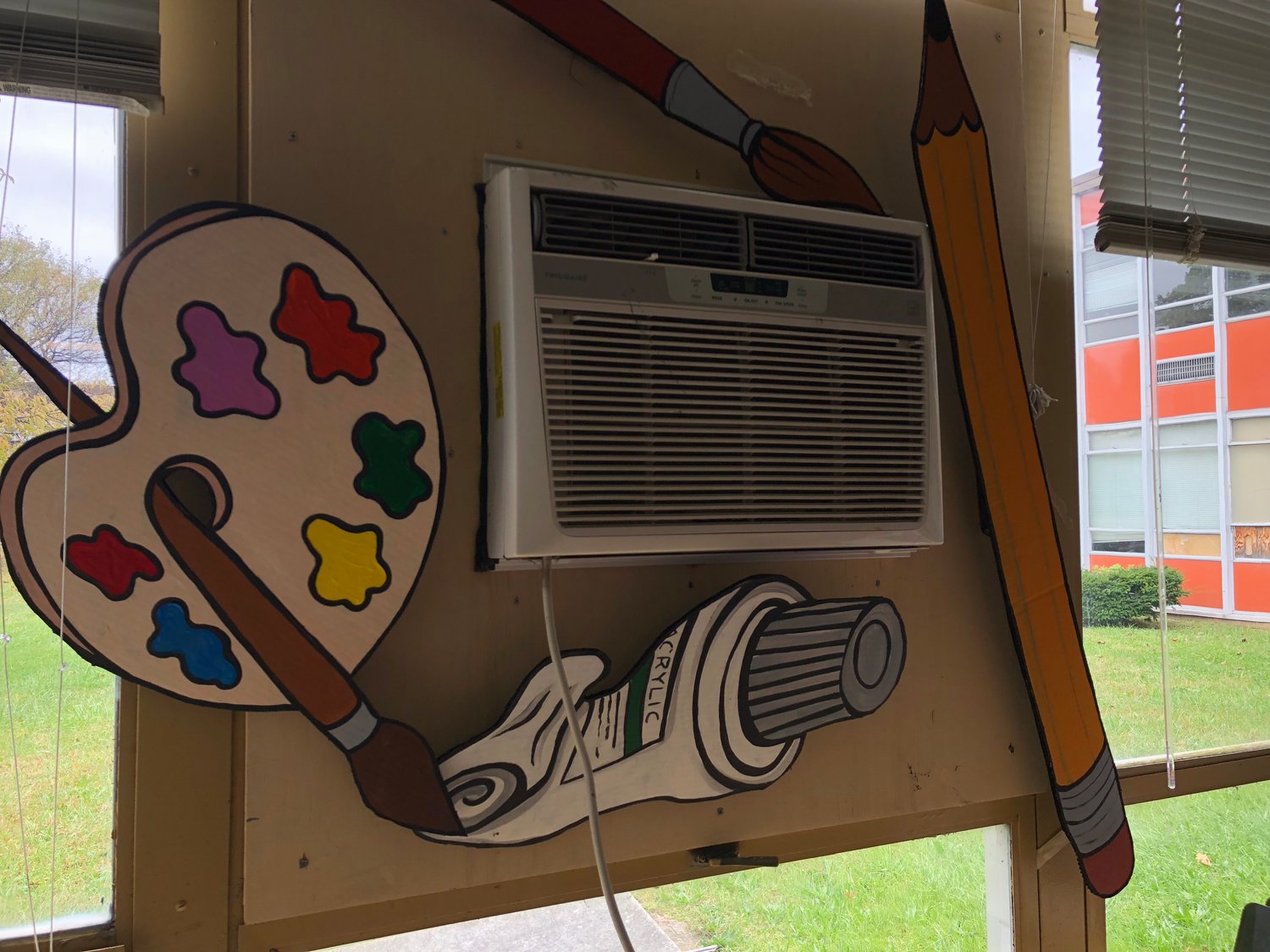District puts up next bond
Discussions focus on costs, priorities and funding for schools
Every year for the past six years, Glen Cove City School District Superintendent Maria Rianna has toured all six of the district’s schools, taking notes on the work the deteriorating buildings needed. Throughout the district, ceiling tiles have fallen, fire escape windows are unusable, heating and cooling systems have become increasingly inefficient and old doors create safety risk for students and faculty.
While the needs are vast, the funding for those repairs falls short. Although the district budgets for repairs and earns grants each year, renovations and upgrades are small, and usually limited to a single room. The Glen Cove High School gym, for example, was refurbished in 2015 with grant money. But when students step outside the gym, it’s almost as if they travel back in time to the 1960s, to a building marred by dated infrastructure and code violations, according to district officials.
To address the schools’ issues, the Board of Education unanimously approved its third bond proposal in the past year at its meeting on Jan. 8. The nearly $46 million measure is a little over half the size of the first bond proposed last year, which totaled $84.6 million. The new proposal would raise taxes for the average Glen Cove homeowner by about $21 a month.
“I’ve spent the last 12 years working on how to be more efficient with our budget, not wasting a penny,” Rianna said, “but we need the bond to address the issues.”
The first bond failed last March, and the second, which was set at $53 million, with an option to add another $23 million, failed in October, but school board President Gail Nedbor-Gross said the district wanted to move forward on the newest bond, in order for it to be put to a vote as soon as possible. Some residents, however, worry that moving too quickly might lead to another defeat.
Rick Smith, who opposed both previous bonds, said that many residents who live on fixed and low incomes do not want to see their taxes increase. At last week’s meeting, Smith criticized the district’s plan to replace outdated doors rather than save money by repairing them, and added that the district should do more with the money it has on hand before pushing for a bond.
Rianna responded that the district does do the repairs it can, but work is limited by a lack of funds. Glen Cove is one of the “Harmed Suburban Five” school districts — along with Westbury, Riverhead, Port Chester and Ossining — which have historically received only 50 percent or less of the maximum potential state Foundation Aid they were entitled to. State Sen. Jim Gaughran, who has worked with Rianna to bring in more funding for the district, explained that a small number of disproportionately wealthy Glen Cove families skew the district’s profile, making it seem as if it doesn’t need as much funding as it does. While Gaughran and Rianna’s work brought an additional $1.3 million to the district in 2019, she said that it is still receiving only about half of what it should.
At last week’s meeting, architect Michael Mark, of Mark Design Studios, reiterated what he said at a bond presentation in December, saying that replacing worn or outdated equipment is better than repairing it. Whenever an item is replaced, 33 percent of the cost is reimbursed by the state. Board Trustee Karen Ferguson added that the district cannot fix one part of a door, for example, without having to address the entire door.
“We can’t just fix door handles, because we would have to bring the whole door up to code,” Ferguson explained. “I used to wonder why we couldn’t just do repairs, too, but this is mandated by the state. Once we touch something, we have to address the whole thing.”
The cost of labor is another consideration. While opponents of the bond have claimed that the district fails to shop around for the lowest bidders for work it needs, Mark explained that bids go through the State Department of Education and the Department of Labor, which sets the rates that workers are paid, because work on schools falls in the category of public works projects. If the district deviates from state mandates, it can face fines and penalties levied by the state, and insurance companies may not insure the work.
“The values that are set are not arbitrarily decided,” Mark said. “These are the steps we have to go through.”
“I’m sorry we’re chained to certain situations,” Rianna said, “but I will not risk the safety of our students as a result.”
In the hope of changing these regulations, and bringing more aid to the district, Rianna, along with other district officials and administrators from school districts around the state, plan to take part in a lobbying event on March 26 in Albany to urge Gov. Andrew Cuomo to increase Foundation Aid funding. Rianna encouraged parents to join her at the event, and invited those interested in learning about the bond to visit the district or look over the details of the proposal on the district’s homepage.
The bond vote is set for March 19.

 49.0°,
Fair
49.0°,
Fair 





